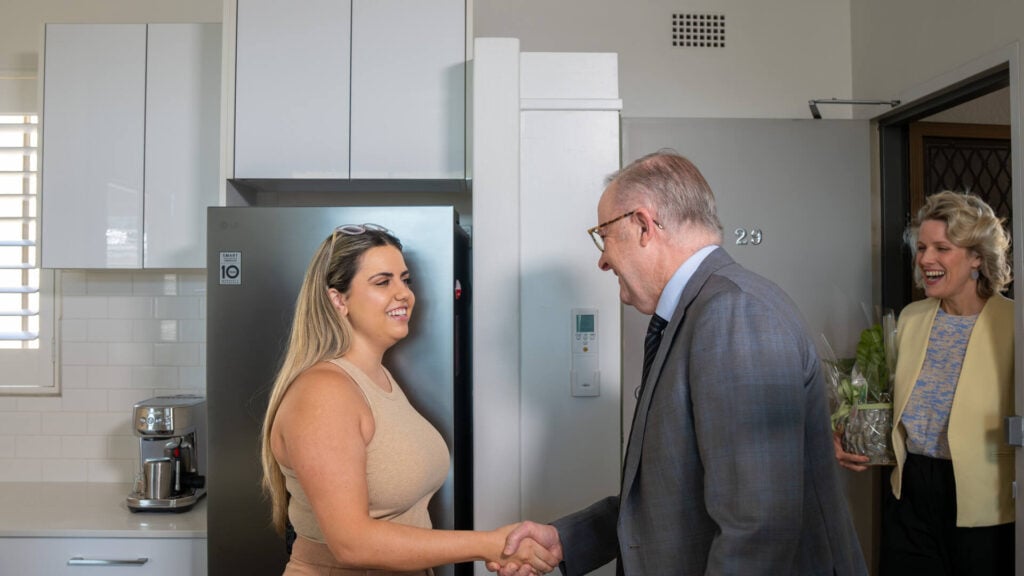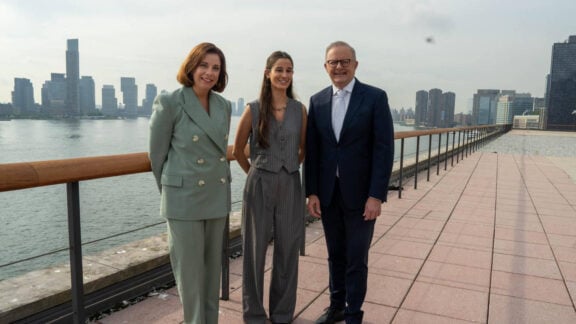From Wednesday, October 1, all first home buyers can enter the housing market sooner with just a 5 per cent deposit, the Albanese Government announced. The scheme, launched months ahead of schedule, marks a generational shift in housing affordability.
A statement from the Prime Minister’s office said, “This is good news for first home buyers, helping more Australians realise the dream of home ownership sooner.”
“We’re making it easier for young people and first home buyers to achieve the dream of owning a home. From today, the 5 per cent deposit scheme will be available for all first home buyers, meaning more Australians can get into their own home sooner. This change will open the door to thousands more buyers, helping them save money and get their keys faster,” Albanese said.
Historic 5 per cent deposit scheme opens doors for first home buyers
The expanded scheme removes caps on places and income, and lifts property price caps in line with average house prices. All first home buyers are now eligible. According to the Government, over 185,000 Australians “have been supported into home ownership through this scheme.”
With Australia’s median home price now $844,000, five per cent equals $42,200 — the amount that in 2002 covered a full 20 per cent deposit for a median home. This highlights the scale of the reform.
Housing Minister Clare O’Neil said the government has a “target to support the building of more homes in five years than ever before”.
“But we’re not going to leave a generation behind while we fix decades of neglect. We can build more homes and help first home buyers at the same time.”
“From today, every first home buyer can purchase their own home with just a 5 per cent deposit. This will cut the average time it takes to save a deposit from 11 years to just two or three. That can be the difference between being stuck renting in your thirties or owning your own home. Expanding this scheme means thousands more Australians can stop paying off someone else’s mortgage and start building equity in their own home.”
The initiative is part of the Albanese government’s “$43 billion housing agenda to build more homes, back first home buyers, and give renters a fairer deal” the statement said.
Fourth Award Wage Increase for Aged Care Workers
The Albanese Government has delivered its fourth award wage increase for aged care workers, reinforcing its commitment to fair pay and better care.
“This is good for workers, good for the economy and will help with the cost of living,” a statement from the prime minister’s office said
“Workers in aged care deliver the very best care for our loved ones, but their work has been undervalued for too long. Every worker in the sector should be able to have a long, fulfilling career supported by strong and sustainable wage growth,” the statement read.
The latest increase means a level two registered nurse—the most common level—will receive an extra $60.20 a week, enrolled nurses will gain an additional $62.40 weekly, and personal care workers will benefit from an extra $39.50 per week.
This follows the Fair Work Commission’s decision to grant an award wage rise for 400,000 workers in the sector. Labor has committed $17.7 billion to support the case.
Treasurer Jim Chalmers said aged care workers “deserve every dollar of this pay rise”.
“This investment recognises their contribution to our economy and community, and creates a stronger incentive for young Australians to choose aged care as a rewarding career.”
Minister for Employment and Workplace Relations Amanda Rishworth focused on “gender equality at the heart of the Fair Work Act”.
“We now see the gender pay gap at its lowest level on record, with Australian women earning more than $250 a week on average than before we came to government. Reducing the gender pay gap was a key reason we funded the 15 per cent pay increase for aged care carers.”
Minister for Aged Care and Seniors Sam Rae said that care workers “deserve better pay and more recognition for the meaningful work they do”.
“We’re proud to be funding the largest ever increase to award wages in a work value case for people who care for our loved ones with such compassion.”









